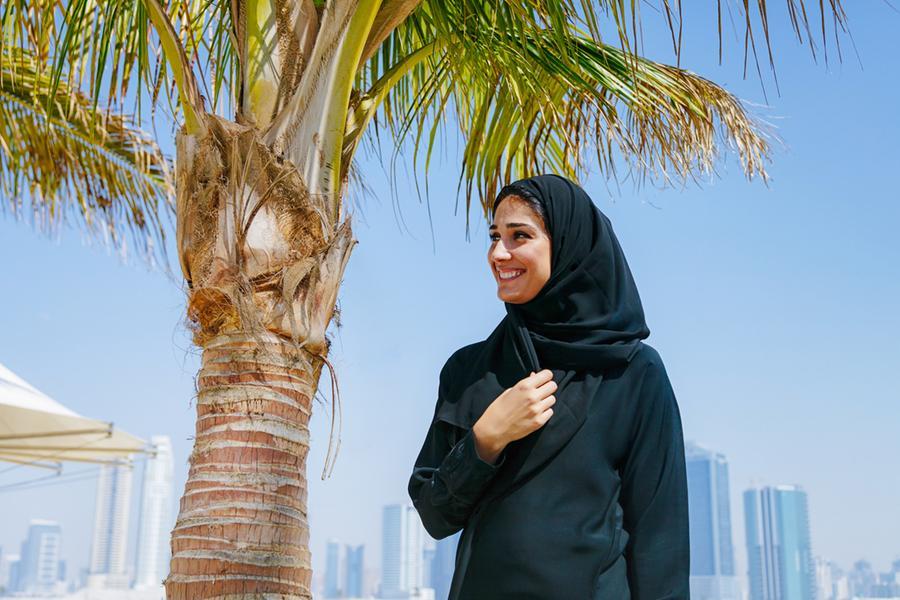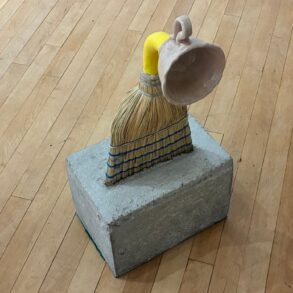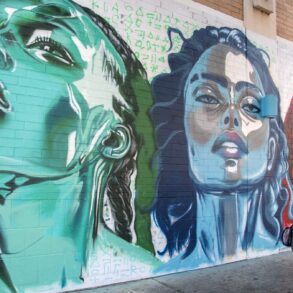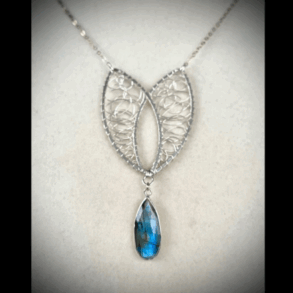
What did childhood entail for Emirati women who have now come to represent modern UAE society? A society in which women are equal stakeholders in the social, cultural and economic progress. Ask Maryam Ali AlBalooshi, and she is likely to tell you that it was normal if not an easy one. Not easy because there were fewer examples of female accomplishment. Today, it is women like Maryam who have become the faces for women’s empowerment in the region, trailblazers who don not one but many hats.
A chief climate change negotiator for the aviation sector, Maryam is an accomplished author who has already written seven books so far and a calligraphy artist who has worked with some of the leading brands in the region. “We did not have much entertainment growing up,” recalls Maryam, who studied to become a chemical engineer. “Hence we were focused on working hard and making something of ourselves, a reason why you will find many women in my generation to be leaders or founders of ventures that are relatively new.”
A woman in the climate dialogue
COP28, hosted by the UAE this month, has become a global talking point for the milestones reached in terms of the dialogue on climate change. But for the likes of Maryam, the calling came way before the urgency of the crisis was felt so widely. She has been working for the International Civil Aviation Organisation, a specialised agency of the United Nations that draws guidelines for the industry’s growth, and has been an important figure in giving insights on how aviation impacts climate. “I have been a COP expert for almost a decade now,” she laughs. “When I started, climate was not even on the agenda. People did not quite understand what we were really aiming for. But now it’s different.”
Maryam adds that energy and aviation sectors have been true backbone of the economy and addressing climate issues, in these sectors at a global level, requires a lot of understanding and learning. “To be a person in climate change internationally, you need to understand the perspectives all the 196 countries come from. When you speak to Latin America, it’s different than when you speak to someone from Asia, Europe. There has to be a bottom-top as well as top-bottom approach when addressing these issues.” Which also begs an obvious question — what perspectives do women bring in the climate change dialogue that are unique? The dominant narrative goes that women’s role as nurturers naturally draws them towards this dialogue more intimately. But trailblazers like Maryam are quick to point out that this has everything to do with hardcore professionalism women bring into this conversation.
“Women are perfectionists and we work hard. For example, my colleagues had the chance to see me working on a climate negotiation project and they saw me spend hours on it. The guys actually told me they cannot be so patient and work tirelessly,” says Maryam. “Women have the mind to analyse and connect things together. I am not sure if it’s a societal aspect, but we feel a greater need to prove ourselves. All women who are working in this space have one common thread — empowerment through education.”
What Maryam does not say, and what is easy to infer from her conversations, is also how leaders like her bring a more balanced and nuanced view on the subject. For instance, aviation is an international sector, and has its own complexity. “People have often criticised us for not doing well enough but aviation is doing more than what’s expected. We work on a global scale. And because of that you cannot work within the boundaries of a country while leaving the region, at large, out of the fame. The UAE has one of the biggest aviation sectors in the world, which is why every move has to be a considered one. Some aspects can slow you down but others can help you move forward. Economic aspects also need to be on the forefront. So, you see, you cannot just aggressively move forward on climate change without understanding what might happen.”
There is considerable truth in that claim. Aviation is about connectivity. “Today, if we had the biggest numbers for a COP event that’s because of advancements in aviation. If there are going to be stringent restrictions put on it, we would create a model for environmentalism which does not take into consideration the economic factor,” she says.
“There are many challenges when working on the issue but that is not an excuse to not work on it at all.”
An avid calligrapher and writer
Clarity of vision aside, being a woman in a position of leadership in the field does not come without its own share of challenges. Maryam remembers a time in 2015 when she was told she’d become a celebrity only because of the job she had. She couldn’t disagree more, but the statement did lead to soul-searching and led her to focus on the artist that resided within. “People know me not just as a climate change negotiator or a politician. These titles are temporary. I have also dedicated myself to calligraphy and writing. In fact, these are the moments that bring me immense relief. Whether it’s my writing or art, there is a storyteller in me,” she says.
Today, many of her calligraphy projects involve working with international names like Van Cleef or BMW. A recent project has seen her work being exhibited in Brazil, a calligraphy in Diwani font in which the words reflect her thoughts about coffee and how it connects with people in different ways. “I must have been three or four years old, when a cousin gave me a practising book on calligraphy. Even before I learned the alphabets, I fell in love with them. I would spend hours copying them.”
As an artist and a writer, her works have, over a period of time, begun to delve deeply into psychology and philosophy. “My last book was published in Arabic and English and had philosophical perspectives on life. I am trying to write a novel, but it will take its own course. I want to write in a manner where readers feel I am speaking to them, that there is a message for them,” says AlBalooshi, who will be speaking at a special panel at the next year’s edition of Emirates Airline Festival of Literature on Arabic calligraphy.
Some while back, when Maryam began her work, she was told something she is less likely to forget. “Can a hijab-wearing woman lead efficiently?” A decade and several milestones later, Maryam has proved her critics wrong with a canvas that keeps getting broader. “We have been raised to represent our values even internationally. The reason my generation is well-respected is because we have been empowered with good education. Those who were once sceptical of me have now become my closest friends,” she says. “People will always respect you for your mind.”
Copyright © 2022 Khaleej Times. All Rights Reserved. Provided by SyndiGate Media Inc. (Syndigate.info).
This post was originally published on this site be sure to check out more of their content






